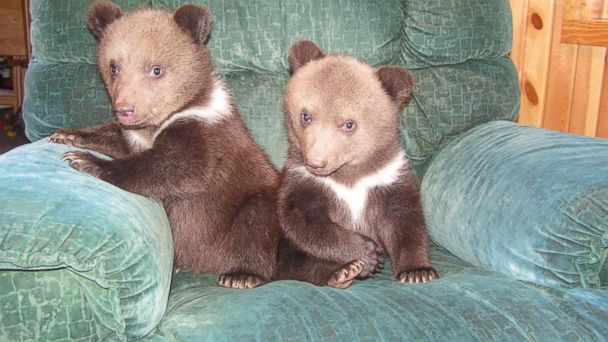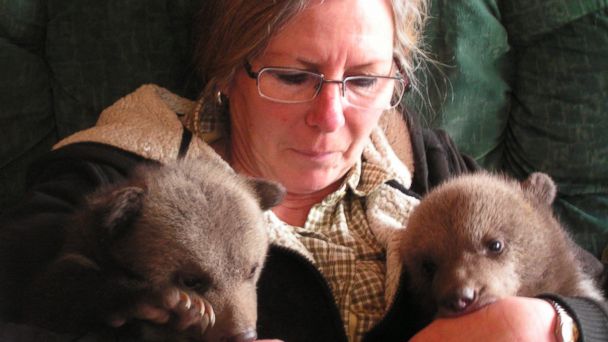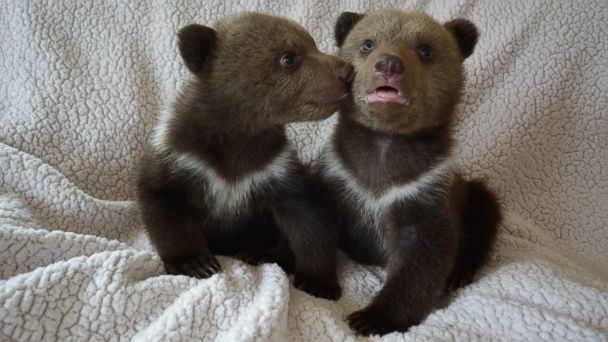A Peek Inside the Life of Raising Bear Cubs
Like something out of the 2011 film "We Bought a Zoo , Shalom Wildlife Sanctuary owners David and Lana Fechter are preparing for the May re-opening of their family-owned and operated zoo in West Bend, Wis. Except this year, they have twin brown bear cubs groomed to meet to the world.

(Photo Credit: Courtesy: Shalom Wildlife Sanctuary)
The Fechters, both 54, adopted the cubs at four weeks from the Chicago Zoo and brought them to their zoo March 1 after their mother needed help raising them. The Fechters, already proud owners of more than 200 animals, were always fascinated by bears and decided to take on a new adventure.
The cubs were named Lewis and Clark because they are natural explorers, David Fechter told ABC News. Although the cubs are living in an indoor facility, Fechter is building a larger outside facility that he plans to finish by July.
"They're extremely intelligent with the way the communicate with us," Fechter said.

(Photo Credit: Courtesy: Shalom Wildlife Sanctuary)
The Fechters work to educate their guests about animals, especially their feelings and their interaction in nature. In that respect, husband and wife are learning a lot about the development of the brown bear.
The cubs make 11 different sounds, and there are variations of the sound, and each sound means something different, David Fechter said.
In addition to their sounds, Fechter said, the two cubs communicate with their eyes, especially through winks. Fechter said he believes the winks ensure that everything is OK.
Fechter likens the care of the cubs to dealing with a 2-year-old child. He noticed that the two males will get jealous if one receives more attention. He also noted that the baby bear cubs recognize him and his wife like innate mothers.
The brown bears grow rapidly during youth and the Fechters are documenting their experience on their Facebook page. They said the cubs can grow to about 1,000 pounds at 5 or 6 years old.

(Photo Credit: Courtesy: Shalom Wildlife Sanctuary)
The 100-acre Shalom Wildlife Sanctuary is one hour north of Milwaukee. The Fechters bought the land in 1979 and have been growing their zoo's animal population ever since.
Based on the amount of attention their cubs are receiving, they are expecting a larger-than-normal crowd this year, Fechter said. Although a larger crowd may be hard to accommodate because of the small staff (Fechter runs the zoo with his wife and a few volunteers), he says the safety and well-being of his animals are his main concern.
That might explain why Fechter's visitors say his animals always seem happy.